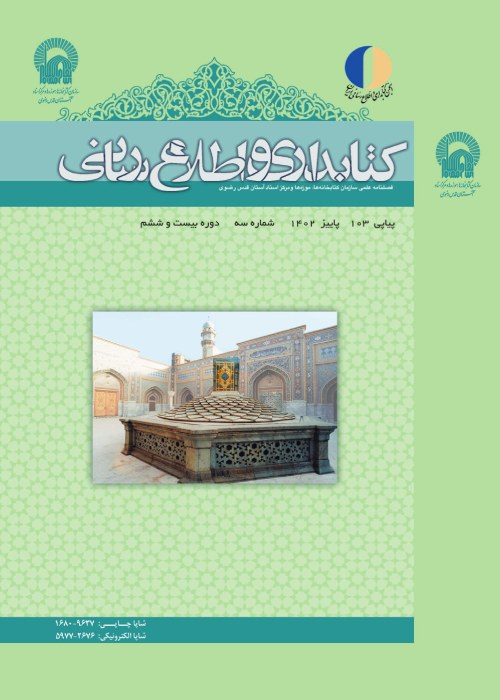Analysis of knowledge management components in higher education resources and curricula (using meta-combination method)
The purpose of this study is to determine the status of knowledge management components in higher education resources and curricula using the study of previous research.
The present study is a type of mixed exploratory research projects. First, knowledge management components were extracted by content analysis method. Based on that, a questionnaire in the form of 9 main components and 44 questions was provided to knowledge management experts. In addition to the questionnaire, a check-list was prepared in the form of 442 sub-items. In order to prepare a list of doctoral dissertations in the field of knowledge and information science, the orientation of knowledge and information management and the master's degree of management in the field of knowledge and information management were examined. Then, 122 published Persian and English articles between 2000 and 2020 in the field of knowledge management in higher education were reviewed.
The review of previous texts showed that among the nine components studied, the knowledge sharing component had the highest share of 26/67 percent and the knowledge protection component had the lowest share of 4/43 percent. The components of knowledge application were 15/85 percent knowledge creation was 14/17 percent, knowledge change was 10/63 percent, and knowledge organization was 9/65 percent. The components of knowledge identification gained 7/68 percent, knowledge development gained 5/91 percent and the component of knowledge presentation gained 5/02 percent.
Higher education is considered as the most important source of knowledge sharing by presenting new models of knowledge and measuring and evaluating knowledge, which is a necessary precondition for successful application of knowledge. Knowledge creation and development are also among the most important missions of higher education that lead to the application and updating of theoretical knowledge. Knowledge change is also a reciprocal process between explicit and implicit knowledge that leads to the creation of new knowledge. Knowledge protection is one of the gaps in higher education that failure to pay attention to it disrupts the success of knowledge management because the success of knowledge management is the product of adopting and implementing an appropriate and integrated strategy in higher education. The textbook is a basic learning resource in higher education that determines the structure of study within the curriculum. Therefore, it is necessary for higher education to pay more attention to the proposed curriculum resources to provide and teach all components of knowledge so that professionals and graduates of higher education have sufficient abilities to acquire knowledge, apply knowledge, share knowledge and have the necessary innovation and creativity in society.
- حق عضویت دریافتی صرف حمایت از نشریات عضو و نگهداری، تکمیل و توسعه مگیران میشود.
- پرداخت حق اشتراک و دانلود مقالات اجازه بازنشر آن در سایر رسانههای چاپی و دیجیتال را به کاربر نمیدهد.



